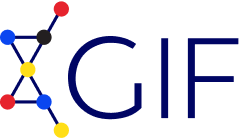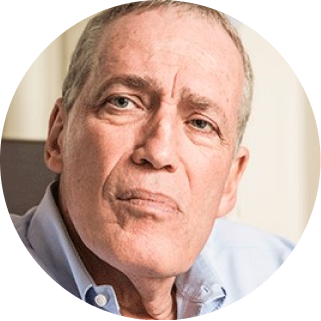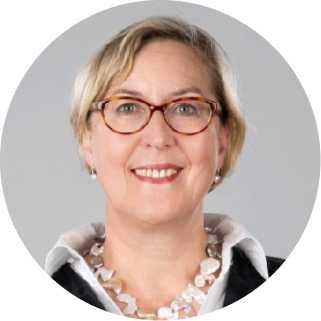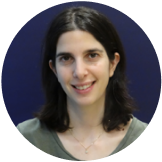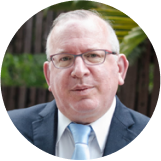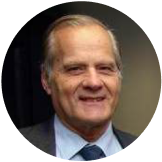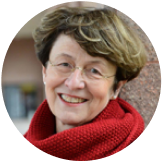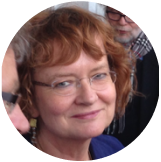Home | Stories & News | Post

- March 15, 2021
GIF supporting Density Functional Theory and materials research – and German-Israeli friendships
from Prof. Dr. Leeor Kronik. (Weizmann Institution of Science) & Prof. Dr. Stefan Kümmel (University of Bayreuth)
In 2001, Leeor Kronik and Stephan Kümmel met as young postdocs at a meeting of the American Physical Society. Originally being “competitors”, as we worked on similar scientific questions, we realized upon meeting in person that there were future projects in which being partners instead of competitors could be fruitful – and fun. After we had returned to Israel and Germany, Leeor, who then had started his group at the Department of Materials and Interfaces at the Weizmann Institute of Science in December of 2002, and was aided by a GIF Young Scientist grant, visited Stephan and his Emmy-Noether Junior group in Dresden. Leeor found a thriving scientific scene and was impressed by the combination of old, new, and very new in Dresden. Scientifically, that visit ultimately led to a first joint paper on the electrical response of molecular chains. About a year later, when Stephan had accepted an offer from the department of Physics at the University of Bayreuth, GIF Young Scientists program came also to his attention. With GIF’s support, he established contact to several researchers in Israel, and had a chance to intensify his contacts to Leeor. He also visited Israel for the first time on the occasion of being invited to participate as a lecturer at a summer school in Safed that Leeor had co-organized. The workshop on Density Functional Theory was a success, and Stephan left Israel deeply impressed by how eager for knowledge the students at the workshop had been, how excellently it had been organized, and how much fun and how fruitful it was to do science in Israel.
Numerous visits followed, and the interaction increasingly became one between the groups, not just the group leaders. Two of Leeor’s PhD student spent several weeks working at the University of Bayreuth, and several of Stephan’s PhD students visited Leeor’s group at the Weizmann Institute for extended periods of time. In 2010, Stephan and all of his his group visited Leeor and his group at the Weizmann Institute for a joint workshop and in 2012, Leeor and all of his group visited Bayreuth for a joint workshop. The support from the GIF in the form of two grants in the regular program proved invaluable for allowing two generations of PhD students in both countries to get to know each other and work together. The joint research centered on the theory of electronic structure and dynamics, specifically on density functional theory. The fact that fascinates both Leeor and Stephan about this theory is that it has a clearly defined mathematical structure that is incredibly beautiful to explore, yet at the same time, it allows to access practically relevant problems and is one of the key tools for computational material prediction. Exploring how the power of a seemingly abstract concept such as a derivative discontinuity can be brought to unfold in range-separated hybrid functionals or meta-generalized gradient approximations, and can thus enable much improved in accuracy material science simulations, is still keeping them both busy and happy.
————————————————————————————–
A personal memory (Stephan): On a morning during one of my first visits to the Weizmann Institute, I had gone to the office early and was working alone at a desk in an open-plan office. An elderly man in work clothing entered and started emptying the bins. In passing by where I was sitting, he looked at my documents. Stopping, he asked in a stern voice “Are you German?” I was surprised by the excellent English, and then, saying “Yes” and looking back at the old man who was looking at me firmly, an unhappy feeling what would be next set in. The awareness of the horror that Germans have brought to Jews became very present in my mind, making me feel insecure. However, the elderly gentleman started to smile, and then told me that he had visited Germany years ago and how beautiful he found the country. We chatted for a while, and at some point I dared to ask whether meeting Germans did not feel strange to him, given the bitter history that happened during his lifetime. He paused for a while, and then he said quietly “It must never be forgotten. But it has not been you.” I was very grateful. And I have always felt welcome in Israel.
A personal memory (Leeor): On a visit to Dresden, Stephan and I went to see the newly refurbished Dresden Frauenkirche, a historical icon that was almost completely destroyed in the war. A particularly poignant moment for me was to learn that a significant portion of the funds needed for rebuilding came from the city and people of Coventry, UK, a city that suffered so terribly itself during the war. I do believe that we should and will remember the past, but I equally well believe that hope can triumph over fear and that the human spirit should prevail. That day was a beautiful demonstration of that.
Related Posts
Dinner Discussion “Breaking Barriers: Bridging Science, Business, and Politics” at the Hermann Ehlers Academy in Kiel
On Thursday, July 4, the Hermann Ehlers Stiftung & Akademie hosted a dinner discussion entitled...
READ MORE »Luncheon with the German Federal Minister of Education and Research on the occasion of the German Studies Conference 2024
On Thursday, June 27, 2024, GIF director, Dr. Eric Zimmerman, had the great honor to...
READ MORE »2023/2024 Sylke Tempel Fellowship: Security Policies in Flux – New Perspectives on Israel and the Middle East
On June 20, 2024, GIF Director, Dr. Eric Zimmerman, was invited to the concluding event...
READ MORE »